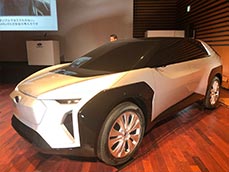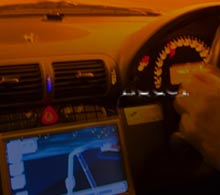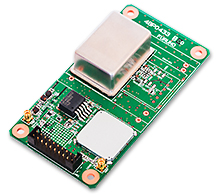Articles for ITS market MaaS and CASE, how would automotive industry change after COVID-19?
TOYOTA : “stopping, changing and continuing”
Toyota announced on May 12 that their annual sale volume will be decreased 22% when compared with the previous year. Meanwhile Woven City, their new generation project, will be started in 2021 without any changes to the original plan.
They emphasized that "stopping, changing and continuing" should remain as the solid company policy. Under the influence of COVID-19, not only Toyota but many other automotive manufacturers executed the "select and concentrate". How will next generation technologies and services such as MaaS and CASE change after COVID-19? I would like to add some contemplation for each field.
Contemplation of MaaS and CASE
Connected and MaaS
Before and after the state of emergency declaration, people‘s mobility data had attracted much attention as an effective tool to measure changes in the congestion. Up until now, MaaS has been focused on combining public transportation such as trains, buses and taxis. However, it is expected that now the importance of MaaS will increase as a public service including private cars.
Autonomous driving
In Honda‘s financial report, President Hachigo mentioned that they would “re-examine the social demand” regarding the mass production of Level 3 autonomous driving cars. From this we can learn that there is a possibility it may be postponed. The Level 3 autonomous driving is activated only when there is a traffic jam on a highway. It is technically possible as legal issues have been already cleared. However, now it is necessary to reconsider if autonomous driving cars can generate profitable business or not.
Sharing service
There are people such as medical personnel who must continue working. They have avoided using public transportation and chose cars to prevent infection. Even without having a private car, people can drive a car when needed by simply using a car sharing service. In fact Toyota and Honda launched a subscription service of used cars during the time when people had to stay home. Consequently it is likely car sharing services will continue increasing.
Electrification
The tightening of CO2 emission regulations by the US ZEV, China's NEV policy and the European Green Deal policy is expected to remain unchanged after COVID-19. Some automotive manufactures will aggressively introduce the EV systems into production.
Writer introduction

Mr. Kenji Momota Automotive journalist
His major is the world automotive industry and he is also familiar with the energy industry, IT and the aging society problem as the related fields. He acts around the world based in Japan and USA and writes for the general magazines, the technology journals and the automotive related media etc.
He is also commentator of motor race and world's motor show on TV program based on his career of the driver of Indy Racing League and NASCAR. In recent years, he has been covering about a paradigm shift from developed countries to developing countries, the motorized vehicle like EV and the telematics.
FURUNO ITS Journal
Click here for the latest articles after 2022 (in Japanese)2022
- The "realistic" self-driving roadmap shown by the Japanese government and a hands-on report on the latest Subaru EyeSight X
- Will FCVs (Fuel Cell Vehicles) Become Popular? ~New Movement in Toyota and Honda~
- The 'Complete' online sales of new cars start in Japan. Will this new way of buying cars take root?
- Many Firsts! On-Site Report from Tokyo Auto Salon 2022 - The author, who knows what goes on behind the scenes, looks back on 40 years of history. -
2021
- "Moving toward zero traffic fatalities for four-wheeled and two-wheeled vehicles globally in 2050" ~Experience on Honda's latest safety technologies~
- Tsuneishi Shipbuilding's building and DX, an exclusive visit to the main factory
- Japan's Smart City: New Moves toward Practical Use
- When will self-driving buses (service cars) be put to "full-scale" practical use?
- Utilization vehicle data during disasters
- Toyota-led Connected Technology to Transform Commercial Vehicle Business -From light trucks to large trucks and buses-
- Toyota enters the connected car "Personalization" business
- Japanese automakers' carbon-neutral strategies swept up in ESG investment
- Drive experience of the latest autonomous vehicle models and advanced driving support systems
- Will carbon neutrality accelerate the trend to strengthen LCA (Life Cycle Assessment)?
- Semiconductor shortage exposes realities of the automotive industry
- Online Autonomous Driving Contest Enhancing development of Human Resources
2020
- What happens to CASE when gas cars are banned in Japan?
- When will Flying Cars be launched?
- Expectation vs. reality:Autonomous Driving in Japan
- V2X, Becoming increasingly important in autonomous driving
- Technology of Subaru “EyeSight X”
- Lifestyle-oriented French cars gain popularity in Japan
- Human-oriented smart cities are wanted
- MaaS and CASE, how would automotive industry change after COVID-19?
- The beginning of virtualization era, triggered by COVID-19
- Trend of EV shift and consumer demands
- TOYOTA Press conference about ADAS - Releasing algorithm for "sudden acceleration suppression during attempted sudden acceleration" free of charge -
- The Japanese automotive industry in 2020 - 3 turning points -
- "Using a smartphone while driving" and "Level 3 automated driving"
2019
- Motor show business model is at a turning point - Tokyo Motor Show Report -
- Commercialization and monetization of MaaS - ITS World Congress Singapore Report -
- Android Automotive pays attention to V2X - Report from the Frankfurt Motor Show 2019 in Germany -
- Automobile Distribution Revolution and DCM (Data Communication Module)
- Connected business potential and newly proposed "eMaaS" by Honda
- 5G services for practical use are multiplying
- Connectivity technologies attracting attention due to frequent traffic accidents
- Shanghai Motor Show report -SUV, EV, Automated car & 5G-
- Drone Business roadmap and updates to Michibiki (Quasi-Zenith Satellite System)
- MaaS (Mobility as a Service) "town development." Full-scale promotion for a national project
- CES organizer states "Data Period in 2020s." Transformation of the Automotive Industry in CES, US "-CES2019 Report-"
- "Return to Origin" directed towards the age of change, automatic operation and connectivity
2018
- New proposal for Private Car Automated Driving Level and other Hot 5G Technology Topics
- Standardized EV charging infrastructure concerns in Europe, US, Japan and China - Kobe EVS 31 field report -
- Touring a pure car carrier and a test drive of the latest hybrid car
- Planning stage products are exhibited at the newly established visualized mobility service "TOYOTA MOBILITY SHOWROOM".
- Potential “Community Car-share” program promoted by local residents
- CES Asia Report 2108
- Companies attempt new Vehicle-to-Infrastructure communications, including traffic volume measurements and vehicle positioning. -ITS Asia Pacific Forum in Fukuoka-
- Geneva show in Switzerland. Flying cars and MaaS (Mobility as a Service) were hot topics.
- EV (Electric Vehicle) proposals by country
- MaaS competition through service mobilization, M & A and technical field collaboration is accelerating. - The CES 2018 Report -
2017
- Big data’s initiative and fight for the automotive industry. Cooperation among companies becomes increasingly important.
- Connected car and road-to-vehicle communication automatic operation
- ETC (Electronic Toll Collection) and ETC2.0. Current situation and projected future
- Rapid development of sharing economy
- Germany is first to recognize level 3 automated driving
- ITS EU 2017 Field Reports -Automatic Operation and the eCall-
- From Infotainment to ITS, the competitive area is spreading in the car big data industry.
- GTC (GPU Technology Conference) Report and the de facto standardization of AI (artificial intelligence)
- Renesas' new challenge! "e-AI Solution" and "Renesas Autonomy"
- The Automobile industry is shifting from a manufacturing industry to a service industry.
- The movement toward accident countermeasures for aging drivers in Japan
- Fusion of ride sharing and fully automated driving is advancing in the USA.
2016
- Overview of the Quasi-Zenith Satellite System (QZSS) and advancements toward full-scale practical use including the Tokyo Olympic Games - G-space EXPO 2016 report-
- Japan’s automated driving project "SIP-adus" will be a large demonstration experiment.
- The International Home Care & Rehabilitation Exhibition. There were many car manufactures with exhibits booths at this show.
- Japanese car manufacturers starting to concentrate on strengthening the ADAS system
- A new movement of legislation for autonomous cars
- Cyber Security and “AGL”, the new OS for automotive are hot topics in the connected car industry
- “High precision 3D map” the key future of autonomous car and pedestrian dead reckoning
- Chinese “BAT” is accelerating their business in the EV (Electric Vehicle) market
- Tesla's original connection to Taiwan and the new transportation system technologies.
- "The main topic" of the Geneva Motor Show was how to strengthen "pedestrian protection"
- The probe data business is getting more competitive
- Reporting directly from the 2016 CES show "Data services will soon become the main revenue source of automotive industry"
2015
- Do the automated driving systems need the GNSS (Global Navigation Satellite System) ?
- ETC Version 2.0 is coming soon. A new service was announced at the Tokyo Motor Show and the possibility that is could be used as a device for older drivers.
- "Connected Horizon" and "eHorizon". Germany's leading parts supplier accelerates strengthening of "Big Data" for business



 Announcement by Akio Toyoda
Announcement by Akio Toyoda MaaS promoted by Microsoft
MaaS promoted by Microsoft EV’s design model
EV’s design model GPS/GNSS Receiver&Chips and Modules (positioning and timing)
GPS/GNSS Receiver&Chips and Modules (positioning and timing)